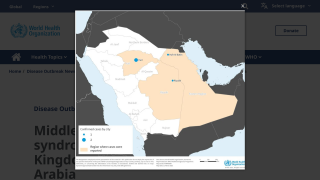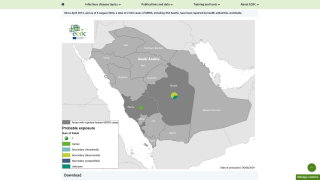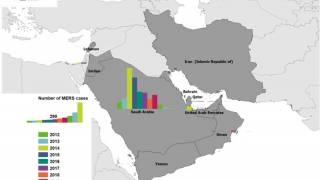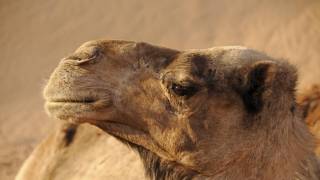Camels Shed More Than MERS

Many tourists visiting the Middle East often take camel rides to enjoy the views of the desert. While this is a glamorous adventure, most people are unaware that camels are a source of various zoonotic diseases.
New epidemiological or molecular evidence shows zoonotic diseases are spreading from camels to humans. These transmissions occur through camel milk, meat, and direct contact with camels.
The journal Frontiers in Veterinary Science published a review on October 3, 2023, that revealed that eight (36.4%) of the 22 investigations that offered convincing evidence of camel-to-human transmission involved Middle East respiratory syndrome coronavirus (MERS-CoV), five (22.7%) Brucellosis, four (18.2%) plague caused by Yersinia pestis, three (13.6%) camelpox, one (4.5%) hepatitis E, and one (4.5%) anthrax.
The reporting of these zoonotic diseases has been steadily increasing, with the most recent period, from 2010 to the present, accounting for 59% of the reports.
Middle East respiratory syndrome (MERS) is a viral respiratory infection caused by the MERS-CoV, a merbecoviruses.
Since the first report of MERS-CoV infection in a patient who died in Saudi Arabia in 2012, about 2,605 cases with 945 associated fatalities (36%) have been reported from 27 countries in six World Health Organization (WHO).
A typical presentation of MERS disease is fever, cough, and shortness of breath. Pneumonia is a common finding but not always present. Gastrointestinal symptoms, including diarrhea, have also been reported.
Severe MERS illness can cause respiratory failure that requires mechanical ventilation and support in an intensive care unit.
The WHO wrote on August 29, 2023, that it expects that additional cases of MERS-CoV viral respiratory infections will be reported from the Middle East and/or other countries where MERS-CoV is circulating in dromedaries. And that patients will continue to be exported to other countries by individuals exposed to the virus.
As of October 13, 2023, MERS-CoV vaccine candidates are conducting clinical trials, but no vaccine has been approved for human use.
Our Trust Standards: Medical Advisory Committee
























